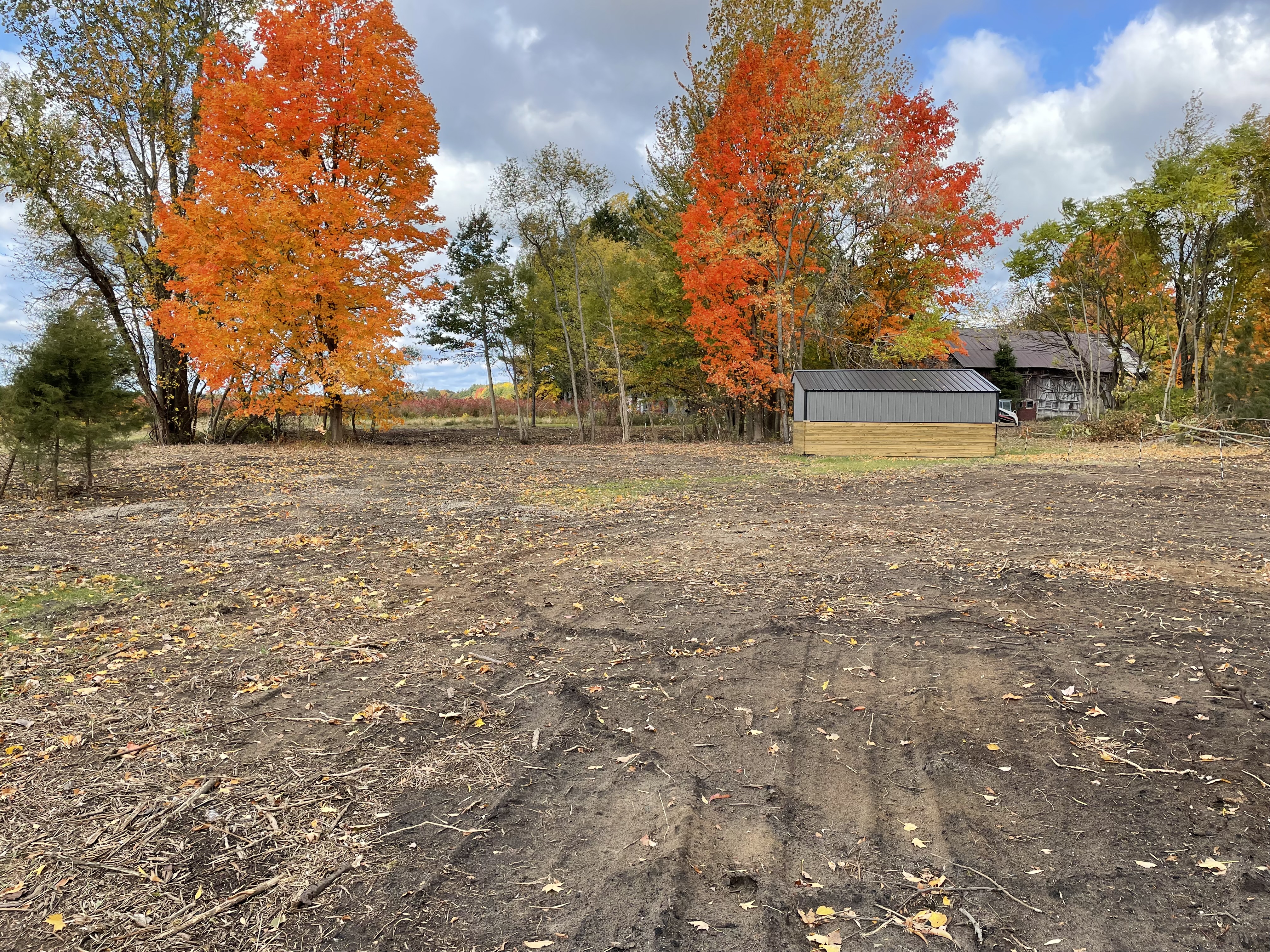Rachael Smedberg of Tulip Tree Gardens in Illinois nailed it when she told the Chicago Tribune, "This is our purpose...to raise up our kids and teach them that we need to protect the Earth." Just how to teach them that -- and remind the rest of us to do the same -- is the challenge, though, because achieving this is a moving target.
 Often thought of as an extractive industry only, farming has the ability to protect the planet, too, by regenerating healthy soil and water. But, as the Trib article makes clear, human-induced climate change is presenting farmers with this moving target. This year, like a lot of farms around the Midwest, North Sky endured pretty drought conditions in May, June, and August. The lack of rain makes produce more susceptible to pests and diseases. Climate change makes growing organic produce without pesticides, especially when farms like ours don't irrigate to reduce pressure on precious groundwater supplies, even more difficult. "Climate change doesn't just move the goal posts back for achieving a healthy planet," says Cam Davis, CFO (chief farming officer) for North Sky. "It's even more tricky. It's like the goal posts don’t just move backwards. They now move side to side, and above and below the playing field." Small farmers, as mentioned below, are even more disadvantaged in the effort to protect the planet.
Often thought of as an extractive industry only, farming has the ability to protect the planet, too, by regenerating healthy soil and water. But, as the Trib article makes clear, human-induced climate change is presenting farmers with this moving target. This year, like a lot of farms around the Midwest, North Sky endured pretty drought conditions in May, June, and August. The lack of rain makes produce more susceptible to pests and diseases. Climate change makes growing organic produce without pesticides, especially when farms like ours don't irrigate to reduce pressure on precious groundwater supplies, even more difficult. "Climate change doesn't just move the goal posts back for achieving a healthy planet," says Cam Davis, CFO (chief farming officer) for North Sky. "It's even more tricky. It's like the goal posts don’t just move backwards. They now move side to side, and above and below the playing field." Small farmers, as mentioned below, are even more disadvantaged in the effort to protect the planet.
This is where policy comes in. Though the word "policy" can induce yawns and confusion for people, having strong rules of the road can achieve a more stable, equitable playing field for society, including its farmers. Right now, though, U.S. agriculture policy isn’t addressing the impact of climate change on farms, at least in any way commensurate with the growing impacts. Farm support like the Environmental Quality Incentives Program (EQIP) focuses on restoring habitat, reducing erosion and runoff, and installing cover crops.
No doubt these conservation measures help fight climate change and that increased funding under the Inflation Reduction Act can help even more. But expanding eligible activities for funding is vital. For example, funding for conserving groundwater, planting trees with the purpose of lowering soil temperatures, providing technical support for planting more climate-resilient, and supporting workers who will sweat even more as the atmosphere warms, could help society better adapt to climate change.
Beyond individual efforts for funding eligibility, systemic change is needed. Paperwork requirements for getting funds is infamously cumbersome. Record keeping is equally time consuming. U.S. Department of Agriculture support agencies are chronically understaffed so getting help isn’t as pain free as it needs to be. Also, agricultural producers that claim to be organic but cut corners to claim they’re “organic” or don’t grow their food in real soil are a big problem, too (efforts by The Real Organic Project and others to bring truth to organic labeling are valiant). Maybe as serious, these flaws favor larger factory farms instead of small family farmers that don’t have dedicated staff or know-how to navigate USDA’s bureaucracy. According to Politico, however, the systemic bias toward industrial farming has Washington, D.C.’s attention. Good. If agriculture policy is going to even the scales for small-scale family farms, we can’t start soon enough. Climate change isn’t waiting.
Follow us on
